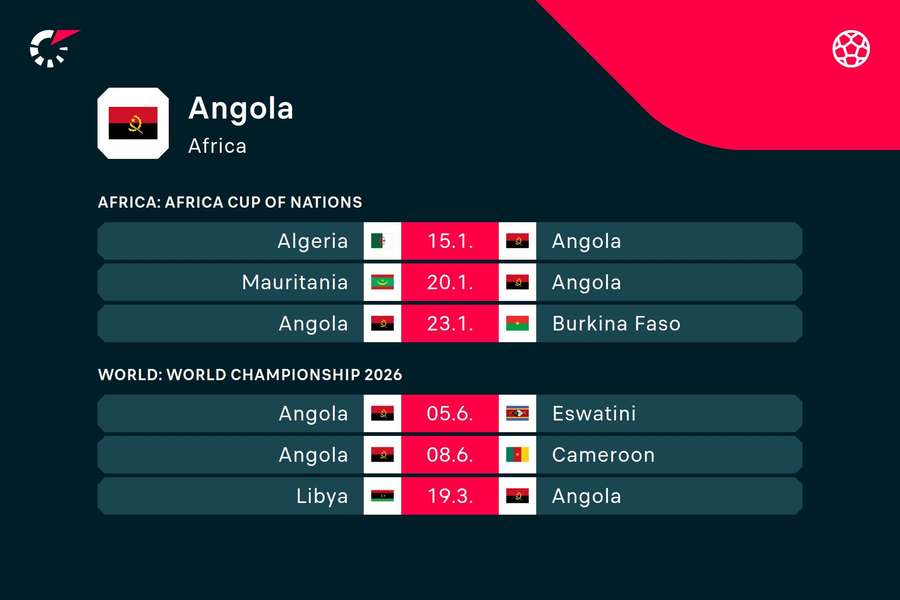EXCLUSIVE: Pedro Soares Goncalves on his career, coaching Angola and AFCON
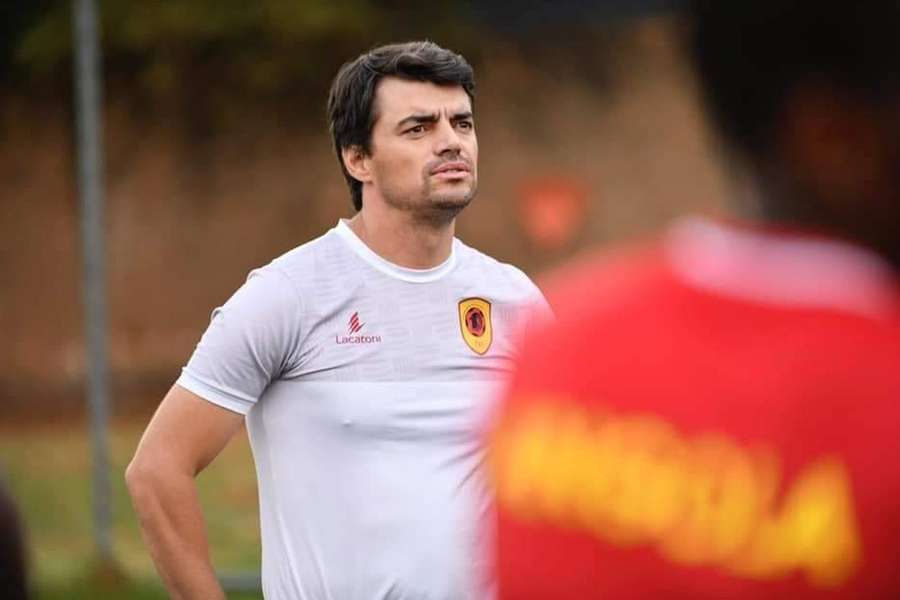
After working with various talents at Sporting's academy in Alcochete, Goncalves moved to Africa to take over the Angolan youth teams - a challenge he tackled with success, leading him to the senior national team role.
A few months later, he is preparing to take part in AFCON for the first time, trying to raise Angola's profile in African football. The 2024 AFCON finals begin in mid-January.
In this exclusive interview with Flashscore, the Angolan coach talks about his career, the difficulties he encountered in Angola and the country's future in the competition and in world football.
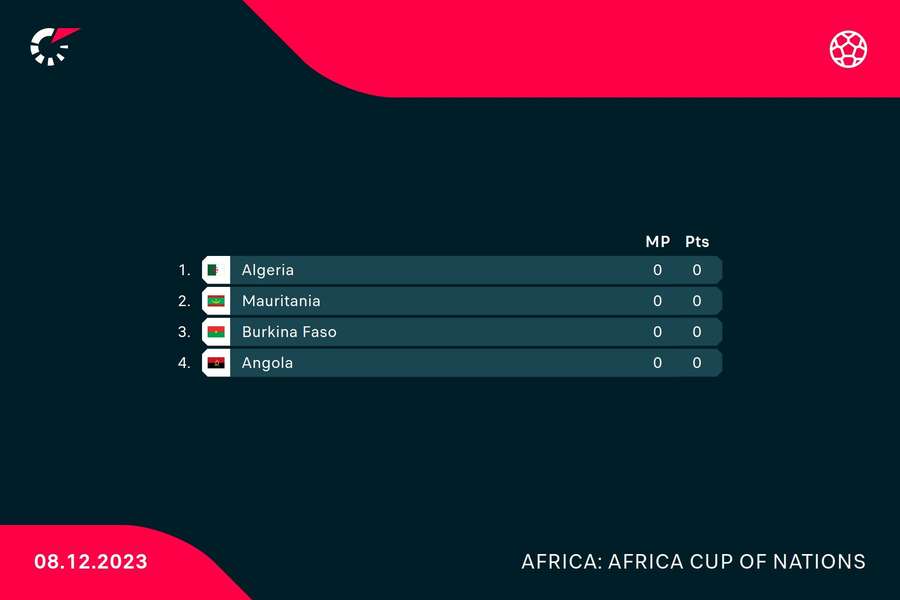
Amora, Barreirense, 15 years with Sporting and you've been in Angola since 2015. How has your career gone?
"I started coaching very early on. I wasn't exactly a virtuoso when I was a footballer and when I had the chance to pursue my academic studies at the Faculty of Human Motricity I was given the opportunity to start coaching a team, the Amora youth team.
"I moved on to Cova da Piedade and spent three very fruitful years there, where I was able to develop a set of skills that Sporting, at the time going through a phase of transition from the old guard to the younger coaches, understood the need for young men with ability to join their ranks.
"In 1999, I joined Sporting's scouting team, led by Aurelio Pereira, and after a year and a half, I had the opportunity to start working with the youth teams, at the time with the under-10s. I spent 16 years at the Sporting Academy until, in 2015, I was invited by 1.º de Agosto in Angola to start leading an academy in Africa and that interested me.
"I ended my 16-year professional relationship with Sporting and went to Angola, completely on a new adventure, with the mission of maximising the academy and projecting young Angolan talent so that they could succeed in football and Angola could benefit from this development.
"Having said that, after three seasons, I was ready to return to Portugal, but then I was offered the chance to lead the U17 team to the World Cup. Things went well, we were champions of Southern Africa and that opened the door for us to take part in the African U17 Championship. At the same time, I was leading the process for the U15 and U16 teams that took part in the CPLP games (Community of Portuguese Language Countries) in Sao Tome and we were also successful.
"With these two achievements, what was suddenly almost the end of a cycle was the beginning of a new one. The Federation asked me to be the coordinator and selector of the youth teams, from the U-17s to the U-23s. It was an exciting challenge. We had qualified for the World Cup in Brazil in 2019 for the first time. A month away from going to the World Cup, the possibility arose of taking over the senior team.
"I started in 2019, we've been through a lot of storms, but we've been consolidating a set of processes that now allow us to participate in the big continental competitions, like the African Nations Championship (CHAN) (the same as the AFCON but only with players who play on the continent) and now we're going to be in the final phase of AFCON."
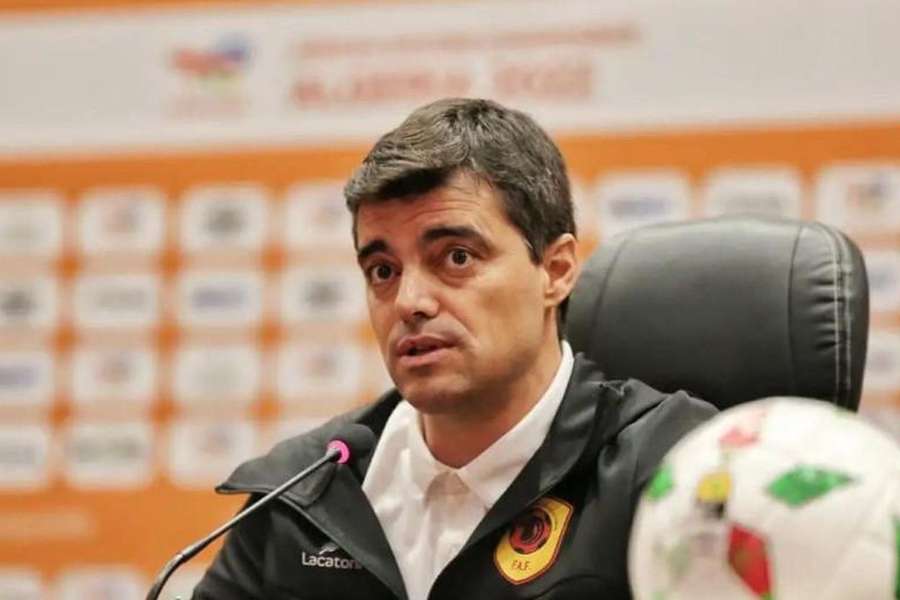
At Sporting, players like Rafael Leao, Eric Dier, Joao Mario, Bruma and Daniel Braganca have passed through your hands. Looking at these names and the past, are you happy to see them playing at the highest level now?
"Very much so. The Sporting Academy was a milestone in my professional career. I had the privilege of working with great professionals in the field. At the time we had the privilege of recruiting great national talent and also some international talent. It was a privilege for me, I had the chance to work with these youngsters who are world-class players.
"The 1999 generation was my last team at Sporting. I ended up closing on a high note with a lot of talented youngsters who are making a name for themselves in world football. Ruben Vinagre, Thierry Correia, Maximiano, Miguel Luis, Daniel Braganca, among others. Daniel Podence, Matheus Pereira, who is a great player and could have reached another peak. When I see them playing at the highest level, I'm happy to have made my own small contribution."
The most popular at the moment is Rafael Leao. He plays for AC Milan, he's an international for Portugal, he's going to be at the European Championships. Does his success surprise you?
"He was part of Sporting's youth team from an early age. He started out at Amora, but at the age of 9 or 10, he joined Sporting's youth team and the organisation spotted an unusual talent in him from an early age.
"The issue was the personality he developed. He had growing up issues that occur in the lives of all young people and that marked a bit of a departure from what could have been, or could not have been, the career he ended up leading.
"At one point, he was about to leave the Sporting Academy because he wasn't following the path we all wanted. At the time, we made a point of trying to mould Rafael Leao and give him one last chance to follow the right path. To give him the elements and clues to follow that path. At that time, three or four months later, he had his first international cap for Portugal's Under-16s and he began to believe that this change in behaviour could open doors to a promising career.
"He began to believe in the talent he had and that if he put in the hard work and determination, he would succeed. Then my colleagues who worked with him believed in his response and, unsurprisingly, he made the first team and then the Portugal squad. He's one of the greatest talents in world football today."
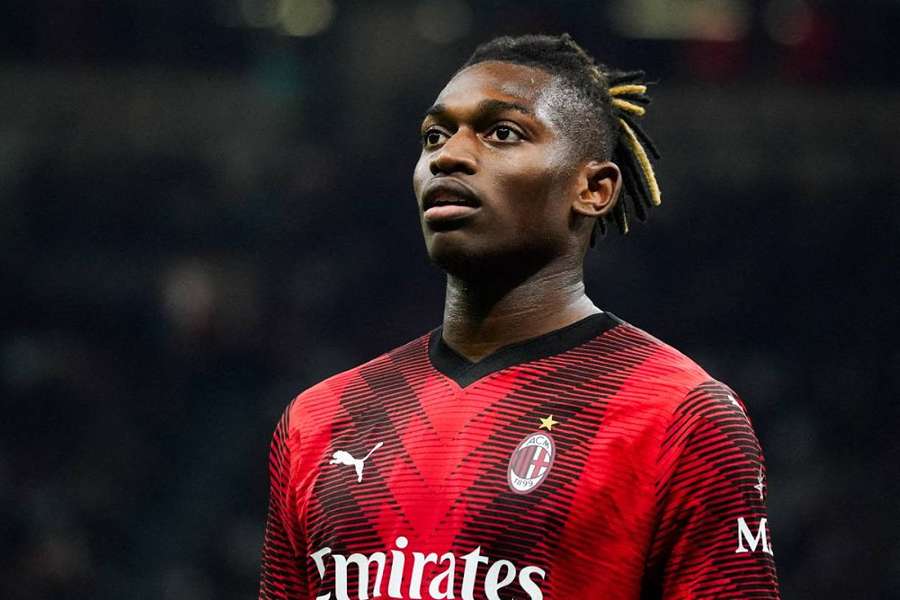
That makes you proud?
"Yes. He's a Palanca. He also has a connection to Angola, even though he was born in Portugal. He follows the Palancas Negras (the Angolan national team) and keeps asking me about them.
"At a certain point when he wasn't being called up, I tried to bring out this Angolan side of Rafael Leao, but his career and everything he's done for Portugal have made him one of the focal points in Portuguese football and in the national team. He's very much followed in Angola because of his Angolan roots."
'Together we're going to take Angola to the top of African football'
Is the issue of dual nationalities and the interest of players who may opt for the Angolan national team but opt for other teams a problem for you as a coach?
"That was the starting point when I took over the senior national team. After the U-17 World Cup, I set to work on the senior team and pointed out that there were two aspects to our development: boosting the young talents emerging from Angolan football, who I knew well and who were starting to appear in European football, but also adding added value from the Angolan diaspora.
"At the time, few were determined and committed to representing Angola. Portugal is the country of reference for the Angolan diaspora, but also in Germany, France, England, Belgium, Switzerland and the Netherlands. If we had more means and resources, all of this would happen faster and more easily.
"Our resources have been scarce, but that doesn't mean we have to resign ourselves. I've been carrying out this work and we've already managed to commit some players to us. There are cases like Helder Costa, M'bala Nzola and others who aren't at such a high sporting level, but who have committed to us and wanted to join us.
"That's the path we have to take. If you look at the African scene, 95 per cent of the players come from the diaspora, most of them in Europe or emerging countries in the Middle East. They are the levers for sporting growth."
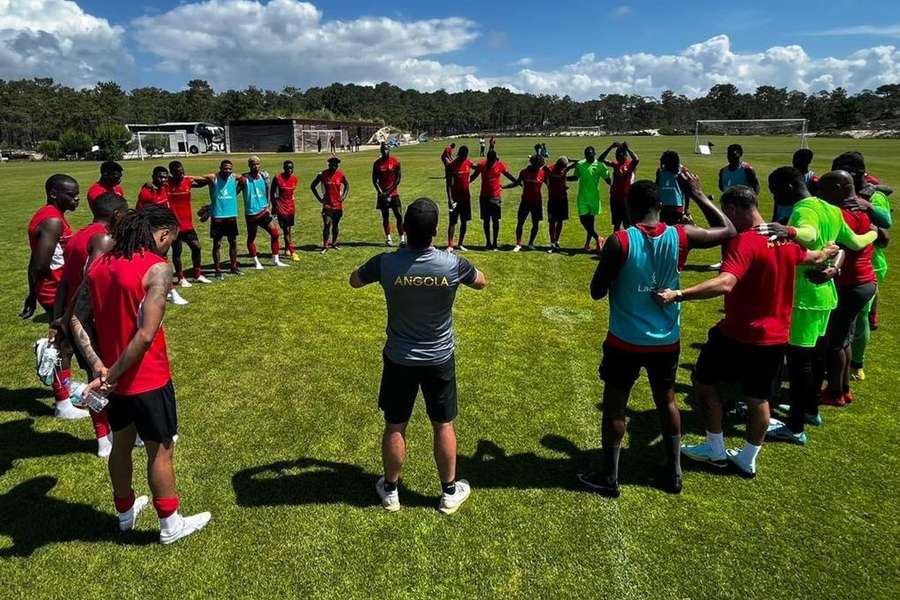
There's another problem, I suppose. Big-name clubs often resist signing an African footballer because the AFCON takes place at a time when the European leagues are at an important stage. Is that another issue?
"It certainly is. AFCON 2019 was held in June-July. The previous edition was back in January, this one too. There's a good side and a bad side. That's the issue. We end up rivalling the clubs, who tell us they'd rather we didn't qualify, but it ends up being a time when, at national team level, the African championship doesn't have to share the spotlight with anyone else. If it were in June, it would be shared with the Copa America or the European Championship.
"It turns out to be a time when many championships are at a standstill, in this case in northern Europe, and we gain audiences with a great return. It's very important for AFCON when the world's greats make a point of being present, such as (Sadio) Mane, (Sebastien) Haller, (Mohamed) Salah, (Pierre-Emerick) Aubameyang and others. It's a great return for everyone.
"What we tell the players is that it's always a milestone in a player's sporting career to be in major continental or world competitions. It's a boost to their careers and an opportunity they can't turn down. This is our challenge. There are situations that we'll have to resolve with the players and the clubs, but it's very important for Africa and Angola that everyone is available."
You're the second-best coach in the history of the national team with the most games and the most wins - 15 in 37 games. In the last 25 games, Angola has only lost three matches, scored 34 goals and conceded just 18. Does this give you good prospects for AFCON, where you'll be playing Algeria, Mauritania and Burkina Faso in the group stage?
"That's 39, with the last few games. These are remarkable figures, coupled with the career I've already had with Angola's youth teams. For me, it already carries a lot of weight on a personal level, because of the journey I've been on in Angola. One day I'll leave Angola, but Angola will never leave me.
"Those numbers show our resilience in overcoming difficulties, our project, the enrichment and consolidation of a set of skills that Angola needed. We've played 25 games in which we've lost three. That's significant.
"It wasn't very common in Angola's past, but we know that there are a number of games that we haven't been able to win, we've had a lot of draws in recent games. We've lacked the discernment to realise the volume of play we've been creating. We've had various off-field situations that have affected us and we can't always count on our squad. That ends up having an impact on the final results.
"What is certain is that we've been very assertive and played positive football. We're starting to be recognised at the African level, not least because of the number of invitations we've had to play preparation matches. It's because our football and our sporting growth are starting to be valued. Now it's about proving ourselves against the best, and it's always been our aim to be among the best, which is why we've set ourselves the target of being in the top 10.
"We want to play the best and there's nothing better than starting with Algeria, who are one of the strong contenders for the title. In 2019, they were champions, in 2022, they had the bitter taste of being surprised in the group stage and they want to clean up their image because they are a team with a lot of potential and serious contenders for the title. There's nothing better than starting with them to make a name for ourselves and have that incentive for the rest of AFCON."
I suppose it's premature to promise anything in competitions like this, but can we expect Angola to be as resilient as their coaching staff has been, and bring joy to the Angolan people?
"Absolutely! There's a lot of expectation and that's a contribution to our work. We're once again giving the people hope, and they're once again believing that Angola can aim to be in the World Cup, which is what all the Angolan people are looking forward to.
"In this case, it's AFCON - Angola is taking part for the 9th time, it hasn't been that regular. On the previous eight occasions, in 26 games, Angola only managed four wins, only twice got past the group stage and never won a game in the knockout phase. That's our starting point, but we know our potential and what has been the consistency of our growth. That gives us the strength to face the challenges and to believe.
"We want to make a name for ourselves against Algeria; Mauritania have been growing, it won't be easy, but we believe we have the ability to overcome them. Then, Burkina Faso, who in the last five editions are the team with the best results despite never having been champions. They've been runners-up, 3rd and 4th, and they're a strong opponent.
"We want to get through the group stage, we're going to set out to do that and it will be game by game, with positive football. May this growing wave become stronger and stronger and together we'll take Angola to that level that all Angolans yearn for, which is the top of African football."
'My contract is until the AFCON'
You said, "One day I'll leave Angola, but Angola will never leave me." I'm guessing from this statement that you have other ambitions. Could we see you coaching a club rather than a national team? And I'm talking about a club in Portugal or Europe.
"The invitation to join the national team setup was completely unexpected and then so was the challenge of the senior national team. If you asked me when I went to Angola if I expected to be a coach, I'd have said 'no.'
"It ended up fitting in with this talent development and projection of the future that I had at Sporting and 1.º de Agosto. I'm very happy with the journey I've been on in Angola, I'm very honoured and grateful.
"We're going to finish AFCON, my contract is up until then, and there will be time to think about what challenges await in my professional career. Returning to Portugal is always on my mind, but we'll see. Right now the absolute focus is on AFCON."
What message would you like to leave the Angolan people?
"Essentially that they see us, our journey, how resilient we've been in overcoming difficulties, that we're very proud to represent Angola.
"Everyone, but believe me everyone, has a huge ambition to project Angola to the world and all together, with this momentum that has been building, the stadiums in Angola have been full and the wave of support has been enormous.
"May we all succeed once again in rising to the challenges and may the Angolan people and everyone who loves Angola see more and more of themselves in their national football team."
